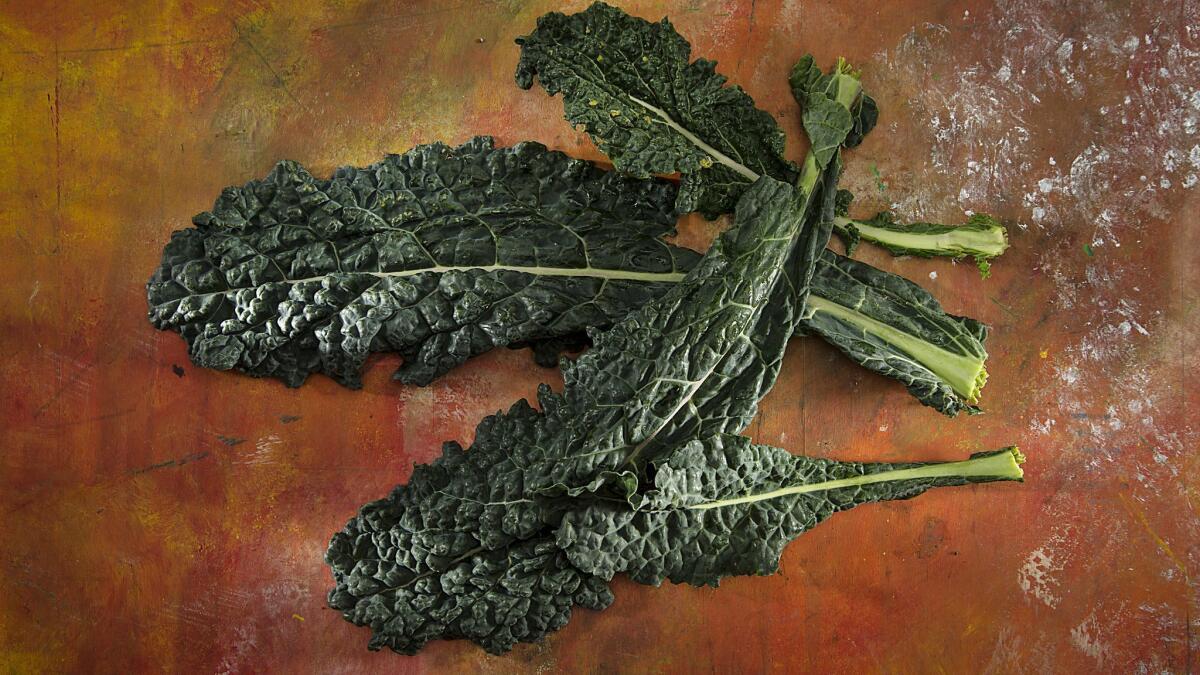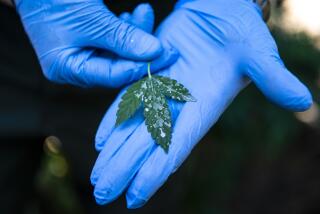New produce guide shows eating kale is a lot dirtier than you think

Kale, strawberries and spinach top the Environmental Working Groupâs list of the 12 non-organic fruits and vegetables with the most pesticide residue. The list, called the Dirty Dozen, is released each year by the nonprofit consumer advocacy group.
The list was compiled using more than 40,000 produce samples tested by the Food and Drug Administration and the U.S. Department of Agriculture. All samples were washed before testing to mimic home consumption.
According to the test data, more than 92% of kale samples contained residue from at least two or more pesticides. And some of the kale had residue from more than 18 pesticides. Dacthal, a chemical compound that has been prohibited in Europe since 2009, was found on almost 60% of the kale samples.
âWe were surprised kale had so many pesticides on it, but the test results were unequivocal,â said Alexis Temkin, the advocacy groupâs toxicologist.
More than 90% of the strawberries, apples, cherries, spinach and nectarines also tested positive for at least two or more kinds of pesticide residue. Rounding out the Dirty Dozen were grapes, peaches, pears, tomatoes, celery and potatoes.
Despite being dubbed âdirtyâ by the EWG, all levels of pesticides were still considered within legal limits. Data from the United States Department of Agriculture Pesticide Data Program and the Federal Food and Drug Administration residue sampling program both show that more than 99% of the produce sampled had residues well below the Environmental Protection Agency safety levels.
The EWG also released a Clean Fifteen list that includes produce found to have the lowest levels of pesticide residue. Fruits and vegetables on this list include avocados, sweet corn, pineapple, frozen sweet peas, onions, papaya, eggplant, asparagus, kiwi, cabbage, cauliflower, cantaloupe, broccoli, mushrooms and honeydew melon.
Out of the 15, avocados and sweet corn were found to be the âcleanest,â and more than 70% of the âcleanâ produce had no pesticide residue.
The FDA recommends washing produce under running tap water to remove or eliminate pesticide residues.
Instagram: @Jenn_Harris_
UPDATES:
4:49 p.m.: This article was updated with additional information from the United States Department of Agriculture Pesticide Data Program and the Federal Food and Drug Administration.
This article was originally published at 3 a.m. on March 20, 2019.
More to Read
Eat your way across L.A.
Get our weekly Tasting Notes newsletter for reviews, news and more.
You may occasionally receive promotional content from the Los Angeles Times.











